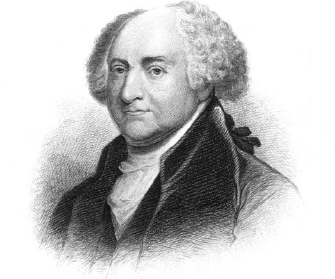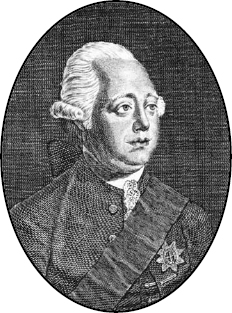American Tempest (21 page)
Authors: Harlow Giles Unger

Lieutenant Governor Hutchinson, meanwhile, recognized that neither he nor Dalrymple's troops could control Boston mobs. Samuel Adams seemed to be winning the war.
Mein remained in the safety of Redcoat barracks for about a month until the captain of a British frigate offered him safe haven and the means of escape to England. Sometime thereafter, John Hancock received a letter from Thomas Longman, a prominent London bookseller and stationer, who asked Hancock to assume power of attorney and collect some £2,000 in long overdue debts from, of all people, the editors of the
Boston Chronicle
. After sending a disingenuous “anything for a friend” reply, Hancock set out to destroy the publication. With John Adams as attorney, he won a judgment against the newspaper. The sheriff seized the printing shop, book store, and its assets; Hancock closed the newspaper, sold the press and everything else in the shop, and sent the proceeds to Longman, thus crushing the opposition press in Boston.
In September 1769 James Otis swaggered into the British Coffee House, all but daring the British army and navy officers who peopled it to challenge him. Brushing past one after another, he spotted Customs Commissioner John Robinson and rushed up to him. “A number of sticks at once were over Mr. Otis's head,” according to Sam Adams, who took full advantage of the brawl to provoke the Boston mob. “A drawn sword,” Adams's depiction continued, “the cry in the room âG-d dân him,' meaning Mr. Otis, âknock
him downâkill himâkill him. . . .' Can anyone . . . entertain the least doubt but that some persons in the company had a design to assassinate Mr. Otis?”
32
In the brawl that ensued, Otis emerged bloodied, badly beaten, and incoherent after repeated clubbing about the head and at least one severe cutlass blow. Otis sued one of the officers and won £2,000 in damages and an apology, but he never recovered from the effects of his head injuries. “He loses himself,” John Adams commented, “rambles and wanders like a ship without a helm. . . . I fear he is not in his perfect mind.”
33
He had always exhibited some eccentricities, but now he wavered between fits of verbosity and melancholy, and he lamentedâto Governor Hutchinson, of all peopleâhis responsibility for the violence then plaguing Boston. “I meant well,” he mewled to the governor, “but am now convinced I was mistaken. Cursed be the day I was born.”
34
Otis sank deeper and deeper into insanity, giving up his law practice and turning to drink. “He talks so much,” reported John Adams, for whom Otis had been a friend and sometime mentor in the law, “and fills it with trash, obsceneness, profaneness, nonsense and distraction. . . . I never saw such an object of admiration, reverence, contempt, and compassion, all at once. I fear, I tremble, I mourn for the man and for his country; many others mourn over him, with tears in their eyes.”
35
In February, the following year, Otis snapped and began smashing the windows at Town House before he was “finally bound hand and foot, loaded into a chaise, and carted out of Boston, an apparently hopeless maniac.”
36
The Patriots named John Adams to fill his seat in the General Court. As one of the luminaries of the Boston Patriots went into eclipse, a bright new star was ascending.
By the end of 1769 mob threats against dissenting merchants forced all but a few staunch Loyalists to agree to abide by the nonimportation agreement. The Hutchinson brothers and Clarke & Sons remained obstinate in their refusal to abandon their commercial ties to Britain or cede authority over the conduct of their business to a mob.

By then, however, the Townshend duties had proved a dismal failure. They had produced less than £5,000 in added revenues for the government and cost British merchants a colossal £7,250,000 in lost annual revenuesâabout two years' worth of trade. Although tea consumption had actually increased, Americans had simply substituted cheap smuggled Dutch Tea for costly East India Company tea, cutting purchases of dutiable English tea from 850,000 pounds in 1770 to 550,000 in 1773 and buying 900,000 tons of smuggled duty-free Dutch tea instead. The Townshend Acts, therefore, had failed to increase British government revenues from duties and succeeded only in provoking colonist fury and uniting Americans in defiance of mother-country rule. The boycott that began in Boston had spread across the coloniesâto Connecticut, Rhode Island, New York, New Jersey, Delaware, Philadelphia, Baltimore, Virginia, North and South Carolina, and Georgia. Only New Hampshire refused to join the continent-wide boycott. With the three great ports of Boston, New York, and Philadelphia united in nonimportation measures,
the author of an anonymous letter to London's
Public Advocate
âprobably Benjamin Franklinâwarned that Parliament's continued efforts to tax the colonies would inevitably lead to a revolution that would require an army of 25,000 men to suppress and cost Britain at least £100 million over ten years.

In January 1770 a new chancellor of the exchequer took office. Godson of the Prince of Wales, Frederick Lord North had been educated at Eton and Trinity College, Oxford, and was known for his wit, easy-going good humor, and mediation skills. Assuming, in addition to his chancellorship, a second post as first lord of the British treasury, he urged Parliament to repeal the Townshend Acts and almost all their duties, and in March 1770 Parliament complied. With merchants able to renew profitable,
duty-free trade with the mother country, Sam Adams's nonimportation agreement in Boston fell apart.
At North's urging, however, Parliament had, without fanfare, retained the duty on one export to Americaâan all-but-minuscule, symbolic, three-penny-per-pound duty on tea that he urged Parliament to retain “as a mark of the supremacy of Parliament and an efficient declaration of their right to govern the colonies.”
37
Although some members of Parliament argued that retaining the tea duty would prolong smuggling of less-costly Dutch tea, the majority voted in favor of what they saw as an important face-saving measure and symbol of their authority over the colonies. As William Pitt, Lord Chatham, put it, the Tea Act would keep colonists from carrying “their notions of freedom too farâespecially if they would disengage themselves from the laws of trade and navigation.”
38
In repealing the Townshend Acts, Parliament succeeded in dousing the flames of rebellion in America, but it foolishly left one ember burning in the form of the Tea Act.

”Damn You! Fire!”
S
am Adams used the Otis brawl as kindling to reignite the fury of Boston's radicals, provoking their literate supporters with inflammatory propaganda in the press and rousing the illiterate with fiery orations in Boston's taverns and at the Liberty Tree. Adams also reorganized the radicals into three groups. He put about 150 waterfront toughs under the leadership of Ebenezer Mackintosh to train as a hard-hitting strike forceâ“as regular as a military corps,” according to Governor Hutchinson. Adams assigned craftsmen and some shopkeepersâthe less vicious but nonetheless well-armed second mobâto William Molyneux, the merchant who had helped found Manufactury House to develop locally made cloth. Adams himself took charge of the Sons of Liberty, whose membership included many small merchants along with some craftsmen and shopkeepers. Often wrapping themselves in Indian blankets to symbolize the Rousseauvian “natural” man, living and hunting in freedom, in unblemished fields and virgin forests, they soon became known as “Adams's Mohawks.”
1
Adams and Otis had secretly organized a fourth “mob” of sorts, however. Peter Oliver called it a “black regiment”âmade up of Congregational ministers who
inherited from their ancestors [the Puritans] an aversion to episcopacy and . . . the Church of England. . . . The town of Boston being . . . the metropolis of sedition . . . those who were the most distinguished of the Boston clergy distinguished themselves in encouraging seditions and riots. . . . One of those preachers, with the reputation of learning, preaching upon the Sixth Commandment to his large parish, declared to them that it was no sin to kill the Tories.
2
With the black regiment echoing his every word on Sundays, Adams pounced on Lord North's retention of the tea tax as a symbol of tyranny, provoking many Bostonians to near anarchyâespecially after he demanded full compliance with the old nonimportation agreement. Personal feuds and rivalries deteriorated into accusations of royalist collaborationâand, inevitably, broken windows, vandalism, and vicious graffiti.
In January and February 1770 reports poured into Boston of serious clashes in New York between bayonet-wielding British soldiers and mobs armed with clubs. In Boston, fights erupted nightly in the city's many taverns and spilled into the streets. In every alley, small gangs lay in wait to assault any lone Redcoat who chanced by. Sam Adams roamed the taverns spreading the seeds of anarchy among small merchants, shopkeepers, and craftsmen who frequented them. Boston's children contributed to tension in the streets by pelting Redcoats or suspected Redcoat sympathizers with snowballs, oysters, or worse. In London, Pitt, who had sided with the colonists, now warned the House of Lords that colonists had carried “their notions of freedom too far . . . [and] will not be subject to the laws of this country.”
3
Early in February, a mob of radicals marched to the door of Governor Hutchinson's house with a petition that his sons, who now managed their father's merchant house, turn over a shipment of tea they had received from the British East India Company. The lieutenant governor shouted in defiance, “I am the representative of the king of Great Britain, the greatest monarch on earth, and in his name require you to disperse.”
Recognizing that mob leaders usually spoke only for themselves or a tiny minority, he demanded to see the petition with its signatures, which the mob spokesman refused even to display. “Gentlemen,” Hutchinson
now shrieked, “when I was attacked before, I was a private person. I am now the representative of the greatest monarch on earth, which majesty you affront in thus treating my person.”
4
Hutchinson went on to denounce Adams's Town Meeting as an illegal usurpation of powers relegated to the state legislature and the royal governor.